Discoveries
Infectious Disease
Viruses, bacteria and parasites are among the many infectious challenges humans face. At Salk we seek to understand infection and immunity in new ways, from finding novel techniques to image and decode the structure of infectious agents to treating pathogens less as enemies to be vanquished and more as potential allies on the road to health.
Imaging solves mystery of how large HIV protein functions to form infectious virus
Assistant Professor Dmitry Lyumkis, co-first author Dario Passos, and colleagues from Rutgers University have determined the molecular structure of HIV Pol, a protein that plays a key role in the late stages of HIV replication—the process through which the virus propagates itself and spreads through the body. The molecule’s structure helps answer long-standing questions about how the protein breaks itself apart to advance the replication process. The discovery reveals a new vulnerability in the virus that could be targeted with drugs.
Featured Stories
 Human Connection – How social interaction and isolation influence our physical and mental healthSalk neuroscientists study how our brains allow us to experience, interpret, and interact with the world around us. Many of these researchers are now studying not only the brain alone, but the brain in a social context.
Human Connection – How social interaction and isolation influence our physical and mental healthSalk neuroscientists study how our brains allow us to experience, interpret, and interact with the world around us. Many of these researchers are now studying not only the brain alone, but the brain in a social context.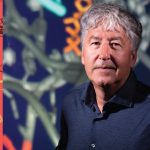 Gerald Joyce—An organizing forceJoyce was appointed Salk’s senior vice president and chief science officer in early 2022. Inside Salk sat down with him to learn about his research on the evolution of RNA, as well as the evolution of his career, science, and Salk.
Gerald Joyce—An organizing forceJoyce was appointed Salk’s senior vice president and chief science officer in early 2022. Inside Salk sat down with him to learn about his research on the evolution of RNA, as well as the evolution of his career, science, and Salk.
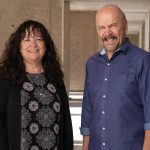 Salk scientists lead $126 million effort to map the aging human brainThe largest grant in Institute history has established the new Center for Multiomic Human Brain Cell Atlas to detail the many individual cells that make up the human brain—their molecular features, where they are found, and how they change with age.
Salk scientists lead $126 million effort to map the aging human brainThe largest grant in Institute history has established the new Center for Multiomic Human Brain Cell Atlas to detail the many individual cells that make up the human brain—their molecular features, where they are found, and how they change with age.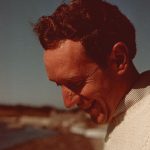 A life in service to science and others: Walter Eckhart exemplified generosity and kindnessEckhart, professor emeritus and director of the Salk Institute’s National Cancer Institute-designated Cancer Center and head of the Molecular and Cell Biology Laboratory for more than 30 years, died on June 21, 2022, at his home in La Jolla, California, at the age of 84.
A life in service to science and others: Walter Eckhart exemplified generosity and kindnessEckhart, professor emeritus and director of the Salk Institute’s National Cancer Institute-designated Cancer Center and head of the Molecular and Cell Biology Laboratory for more than 30 years, died on June 21, 2022, at his home in La Jolla, California, at the age of 84. 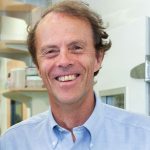 Georg Heinrich “Heini” Thyssen-Bornemisza—Salk Institute mourns loss of influential former Board memberThyssen’s leadership and generosity helped accelerate scientific efforts at the Institute over the years, always with a focus on allowing Salk scientists to continue their pursuit of high-risk, high-impact research. He died on September 30, 2022.
Georg Heinrich “Heini” Thyssen-Bornemisza—Salk Institute mourns loss of influential former Board memberThyssen’s leadership and generosity helped accelerate scientific efforts at the Institute over the years, always with a focus on allowing Salk scientists to continue their pursuit of high-risk, high-impact research. He died on September 30, 2022.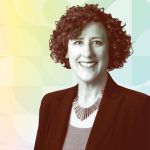 Mallory Zaslav—Valuing the differences in backgrounds and experiencesAs vice president of Diversity, Equity & Inclusion, Zaslav’s forward thinking and advocacy have given shape to a range of impact-driven programming and outreach, furthering Salk’s mission of bettering humanity by pushing the boundaries of innovation and discovery.
Mallory Zaslav—Valuing the differences in backgrounds and experiencesAs vice president of Diversity, Equity & Inclusion, Zaslav’s forward thinking and advocacy have given shape to a range of impact-driven programming and outreach, furthering Salk’s mission of bettering humanity by pushing the boundaries of innovation and discovery.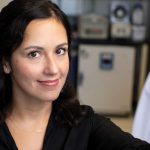 Katia Troha—Discovering diets that boost survival during infectionGrowing up in Peru, Troha’s love of science was fueled by documentaries on groundbreaking studies like the first cloned mammal, Dolly the sheep. She is now a postdoctoral researcher in the Salk lab of Professor Janelle Ayres.
Katia Troha—Discovering diets that boost survival during infectionGrowing up in Peru, Troha’s love of science was fueled by documentaries on groundbreaking studies like the first cloned mammal, Dolly the sheep. She is now a postdoctoral researcher in the Salk lab of Professor Janelle Ayres.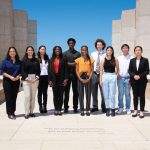 Heithoff-Brody High School Summer Scholars program paves the way for future scientistsFor more than 30 years, Salk’s Heithoff-Brody High School Summer Scholars program has provided hands-on laboratory experiences for local high school students interested in exploring careers in science, technology, engineering, and math.
Heithoff-Brody High School Summer Scholars program paves the way for future scientistsFor more than 30 years, Salk’s Heithoff-Brody High School Summer Scholars program has provided hands-on laboratory experiences for local high school students interested in exploring careers in science, technology, engineering, and math.






















































